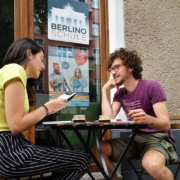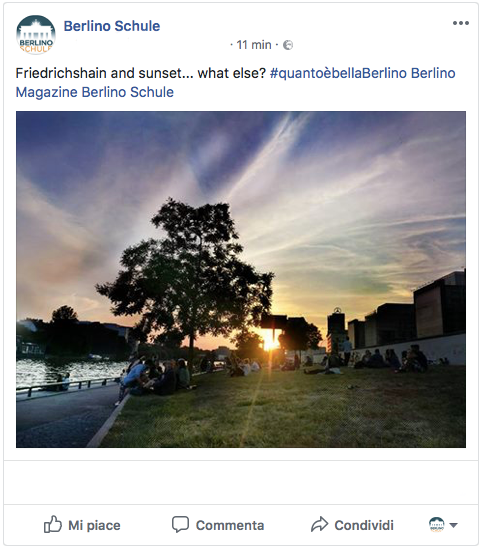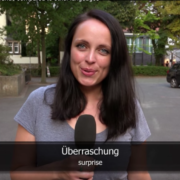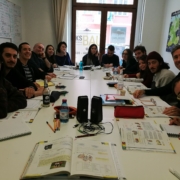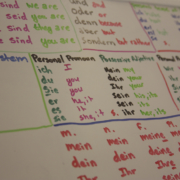Studying German in July in Berlin: superintensive, intensive and evening courses from €4/h. Excellent quality (5/5 on Facebook) and international atmosphere
Many different levels of German courses in July as well as the whole summer.
Summer is coming but Berlino Schule isn’t closing its doors. Our latest online reviews (both on Facebook and Google) reward us with 5/5 stars, thanks to the quality of our teaching and our low prices. Our students claim to have been positively stimulated by our international, young and dynamic atmosphere. Find below our offer for the next months.
Intensive, superintensive and evening courses
From July until September, along with our regular intensive and evening courses, we will also offer superintensive courses. These last 2 weeks each (50hours* in total) and cost €268. Thanks to this type of course, you could be able to complete a whole level within a month! Moreover, our superintensive courses are part of our Summer School project, which includes up to 15 hours of complementary activities, such as guided tours and film screenings!
Our teaching method
Every course is taught in the target language, i.e. our teachers constantly speak the language that our students want to learn when delivering their lessons or explaining the concepts. Our method relies on the belief that a total immersion in the language is the most effective way to improve one’s level. Our teachers have regular meetings to ensure the consistency of our method, regardless of the level of each course.
Choose the most suitable course for you!
INTENSIVE COURSES
4 weeks of morning classes, 3 hours of lesson per day, four times a week, 48 hours* in total.
SUPER INTENSIVE (SUMMER SCHOOL) COURSES
2 weeks of morning or afternoon classes, 5 hours of lesson per day, four times a week, 50 hours* in total.
EVENING COURSES
2 months of evening classes, 2 hours per day, 2 times a week, 48 hours* in total.
Upcoming German courses in July
JULY
Super intensive (Summer School) 268€ for 2 weeks
Morning
B1.1: 2 JULY – 13 JULY ( Mon- Fri 9:15-13:30)
B1.2: 16 JULY – 27 JULY ( Mon- Fri 9:15-13:30)
Afternoon (2.00-6.15 pm)
A2.2: 16 JULY – 27 JULY (Mon – Fri 14:00-18:15)
B2.1: 2 JULY – 13 JULY (Mon – Fri 14:00-18:15)
B2.2: 16 JULY – 27 JULY (Mon – Fri 14:00-18:15)
Intensive courses €192 for 4 weeks
A1.1: 3 JULY – 27 JULY (Tue – Fri 8:45 – 11:15)
A1.2: 3 JULY – 27 JULY (Tue – Fri 11:40 – 14:10)
A2.1: 3 LUGLIO – 27 JULY (Tue – Fri 8:45 – 11:15)
A2.2: 3 JULY – 27 JULY (Tue – Fri 11:40 – 14:10)
Evening Courses 248€ for 8 weeks
A1.1: 3 JULY – 23 AUGUST (Tue and Thu, 19:15 – 21:40)
A1.2: 2 JULY – 22 AUGUST (Mon and Wed, 19:15 – 21:40)
A2.1: 3 JULY – 23 AUGUST (Tue and Thu, 19:15 – 21:40)
A2.2: 2 JULY – 22 AUGUST (Mon and Wed, 19:15 – 21:40)
B1.2: 3 JULY – 23 AUGUST (Tue and Thu, 19:15 – 21:40)
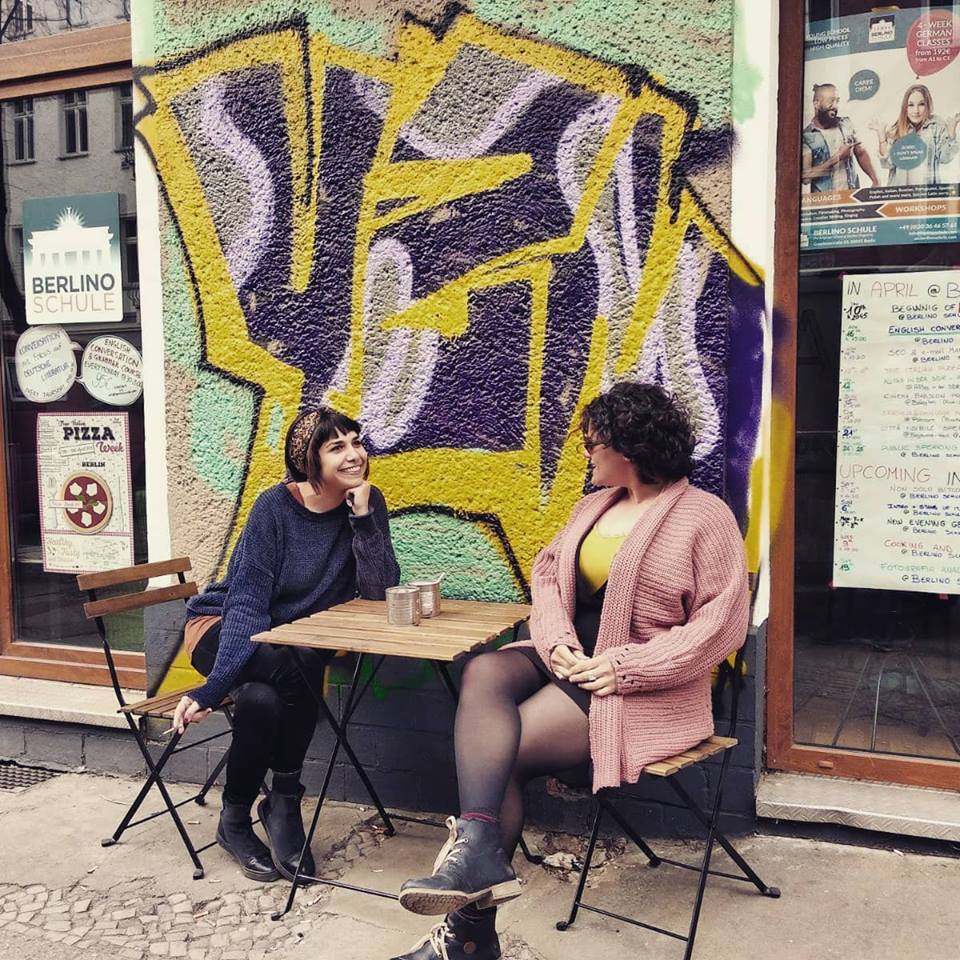
AUGUST
Super intensive courses (Summer School)
Morning
A1.1: 30 JULY – 10 AUGUST (Mon- Fri 9:15- 13:30)
A1.2: 13 AUGUST- 24 AUGUST (Mon- Fri 9:15- 13:30)
A2.1: 30 JULY- 10 AUGUST (Mon- Fri 9:15- 13:30)
B1.1: 30 JULY – 10 AUGUST ( Mon- Fri 9:15-13:30)
B1.2: 13 AUGUST – 24 AUGUST( Mon- Fri 9:15-13:30)
Afternoon (2.00-6.15 pm)
A1.1: 13 AUGUST- 24 AUGUST (Mon- Fri 14:00- 18:15)
A1.2: 30 JULY- 10 AUGUST (Mon-Fri 14:00- 18:15)
B2.1: 30 JULY – 10 AUGUST (Mon – Fri 14:00-18:15)
B2.2: 13 AUGUST – 24 AUGUST (Mon – Fri 14:00-18:15)
SEPTEMBER
Morning
A1.1: 27 AUGUST- 7 SEPTEMBER ( Mon- Fri 9:15-13:30)
A2.1: 27 AUGUST- 7 SEPTEMBER (Mon- Fri 9:15-13:30)
B1.1: 27 AUGUST- 7 SEPTEMBER (Mon- Fri 9:15-13:30)
Afternoon
A1.2: 27 AUGUST-7 SEPTEMBER (Mon – Fri 14:00-18:15)
A2.2: 27 AUGUST-7 SEPTEMBER (Mon – Fri 14:00-18:15)
C1.1: 27 AUGUST-7 SEPTEMBER (Mon – Fri 14:00-18:15)
Accommodation
Should you need any help to find a place to stay while attending your course, send us an email! Berlino Schule have concluded agreements with some flat tenants in Berlin and can put you in touch with them or provide you with a list of hostels and hotels with fair prices which are close to the school.
Skype lessons
The language school “Berlino Schule” is located in Berlin and gives you the opportunity to study German directly from home thanks to our teachers and the private lessons conducted via Skype. We aim at making education accessible to everyone, even those not living in Germany or even those who cannot attend the school. Our individual and Skype classes are made for beginners (A1.1) as well as advanced learners (C1) and the other levels. An attendance certificate will be given to you at the end of your eLearning classes. If you want to take individual classes, no previous knowledge is required. Our flexible schedule will meet your specific linguistic needs and working hours. The attendance will be defined with the school. The price is €28 per hour (45 minutes). Send to us your application and you will have the chance to attend lessons comfortably from home. Contact us at info@berlinoschule.com for further information.
Where
At Berlino Schule, in Gryphiusstr. 23, in Friedrichshain, one of the best, safest and most lively areas in Berlin. Moreover the school is within walking distance of the East Side Gallery (the longest segment of the Berlin Wall still standing), one of the main touristic attractions of the capital city.
Course calendar
Berlino Schule offers courses for everyone: intensive, evening and conversation ones. The whole language offer is available on the official school website.
Consult here the complete German courses calendar of Berlino Schule.
To enroll and have more information, don’t hesitate in contacting us at: info@berlinoschule.com or visit our website.

